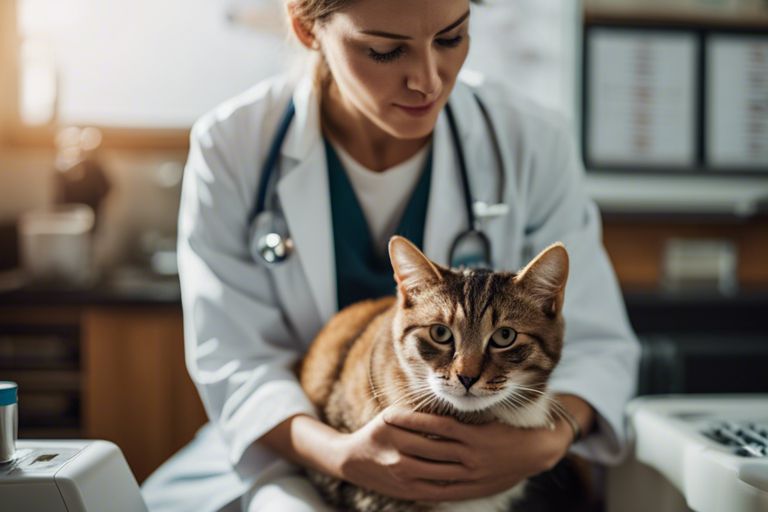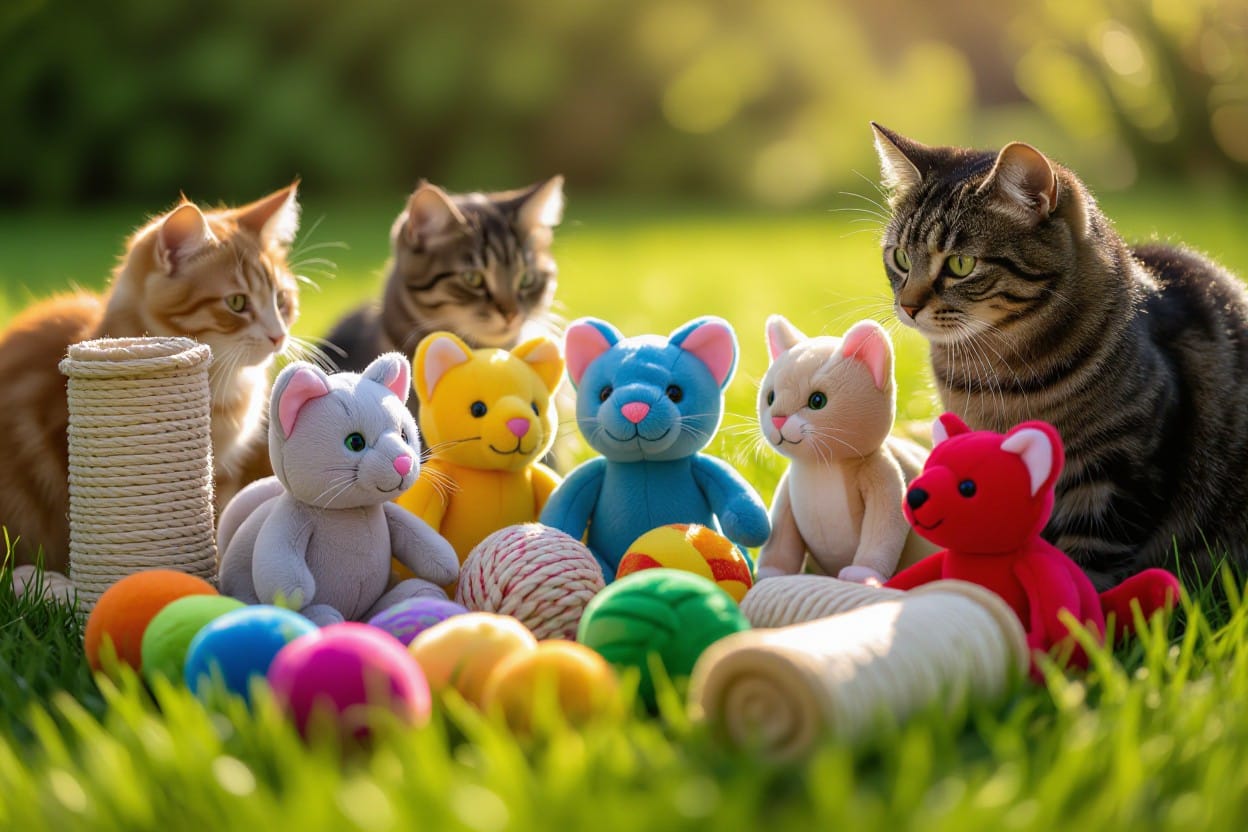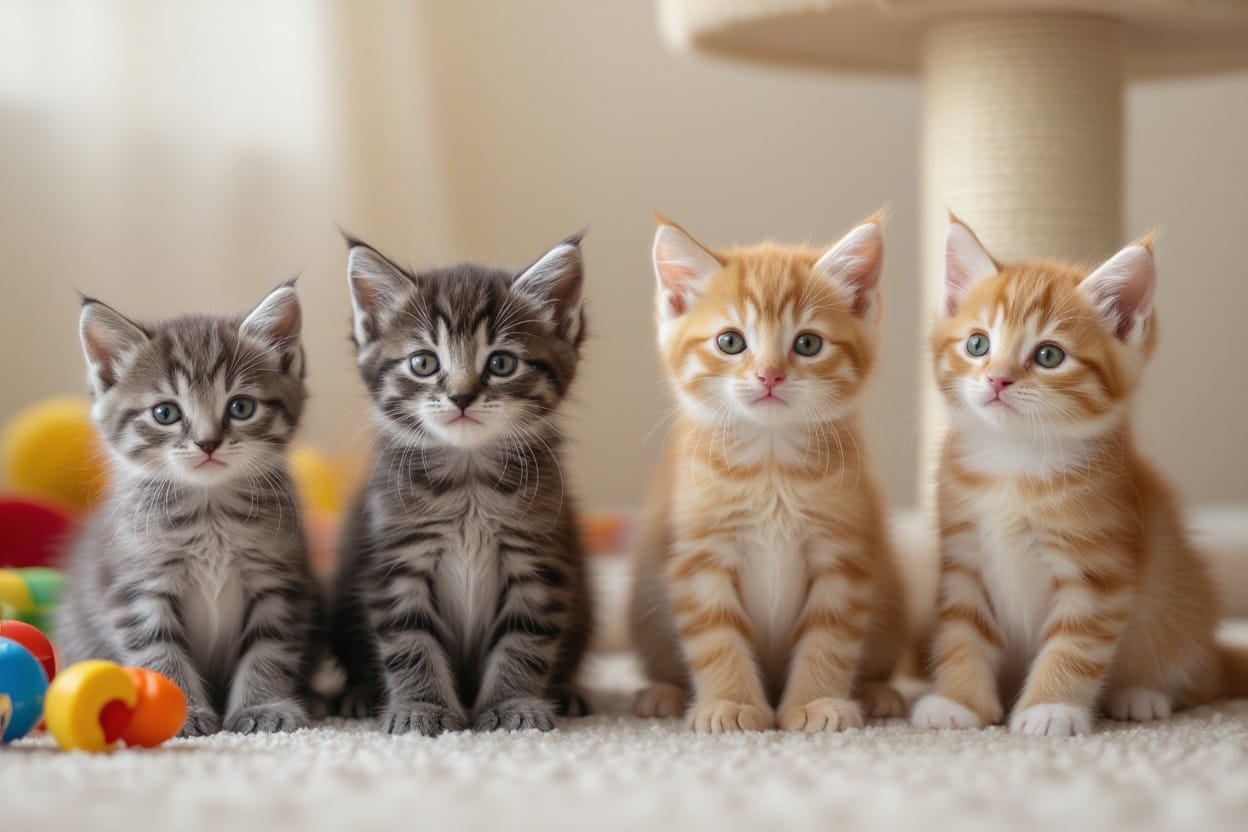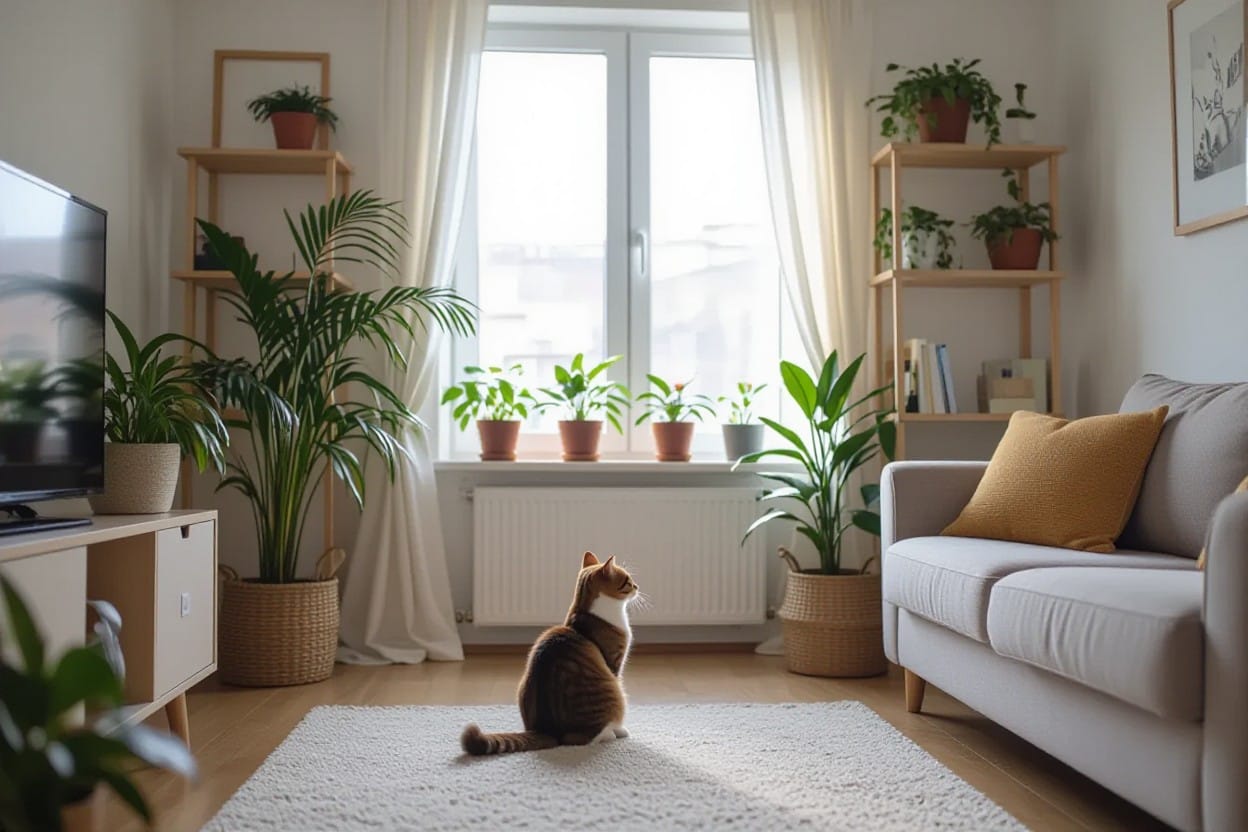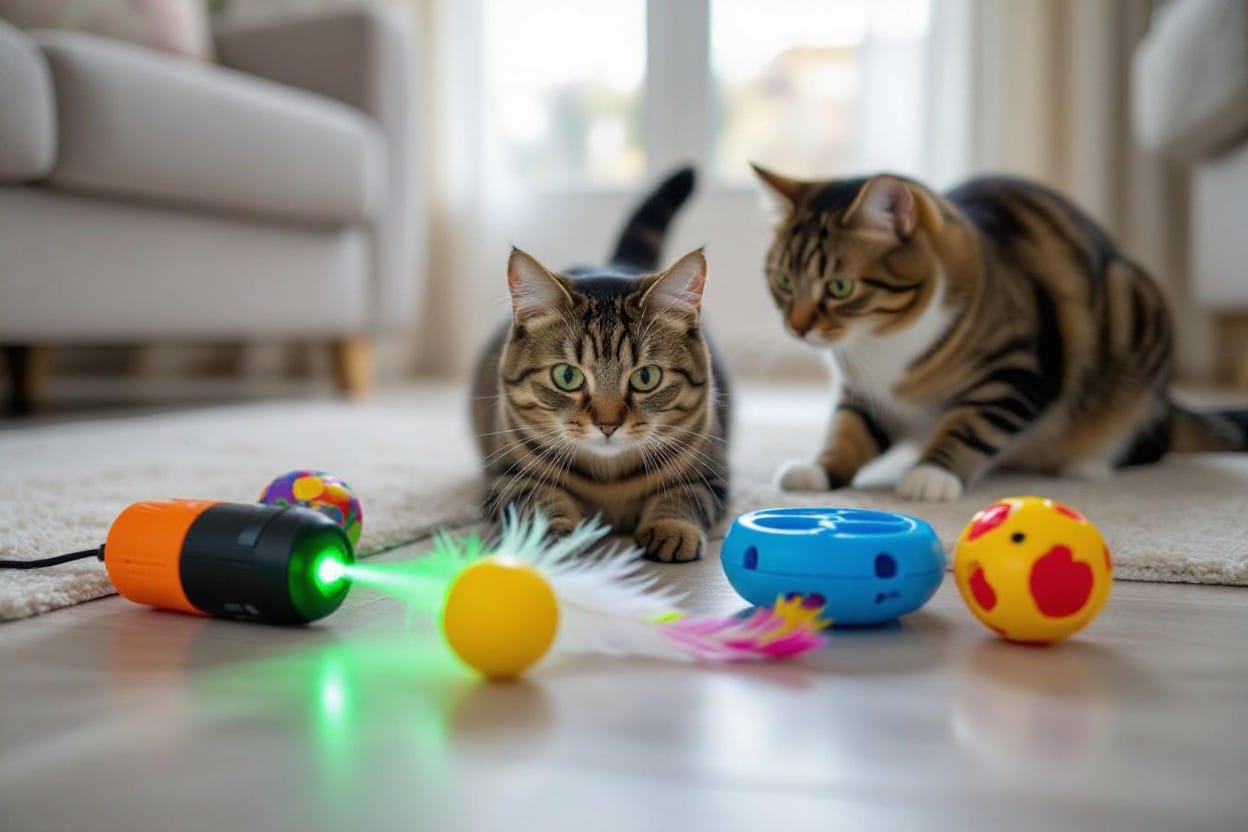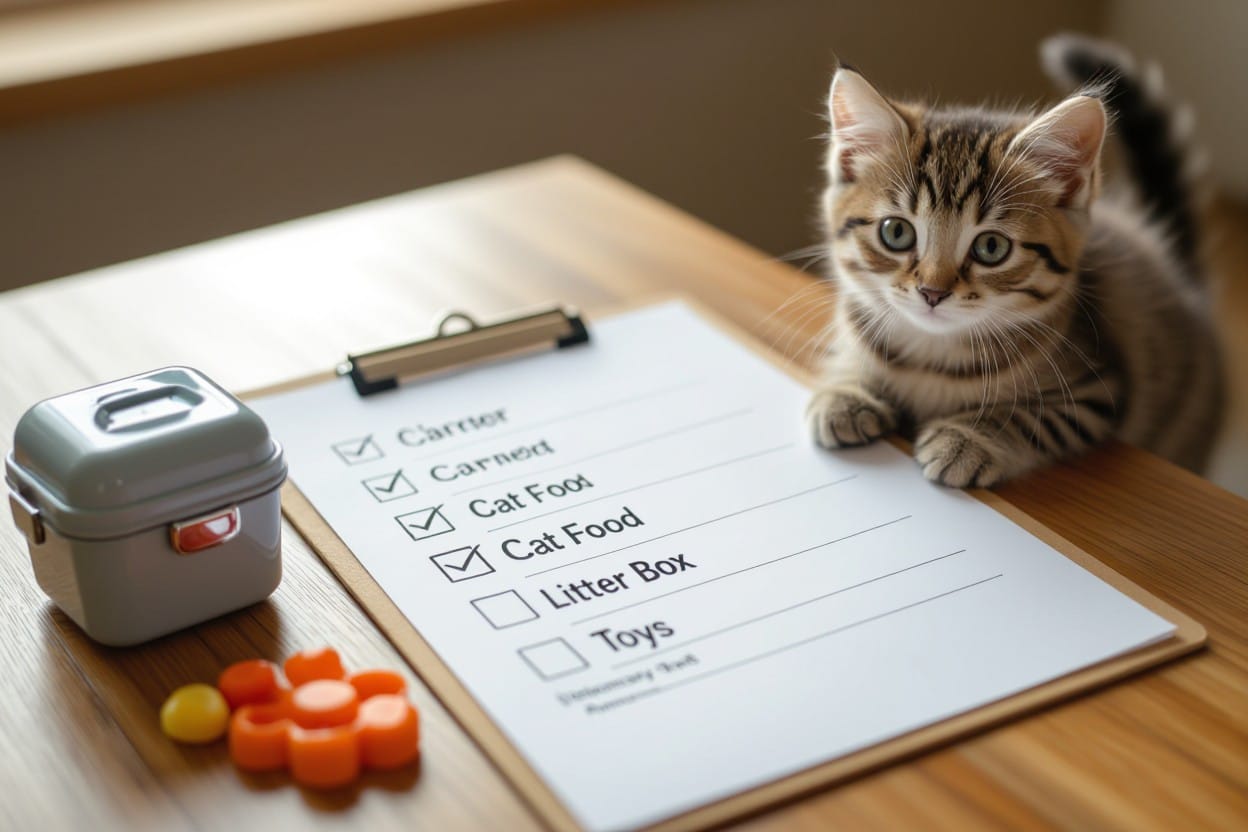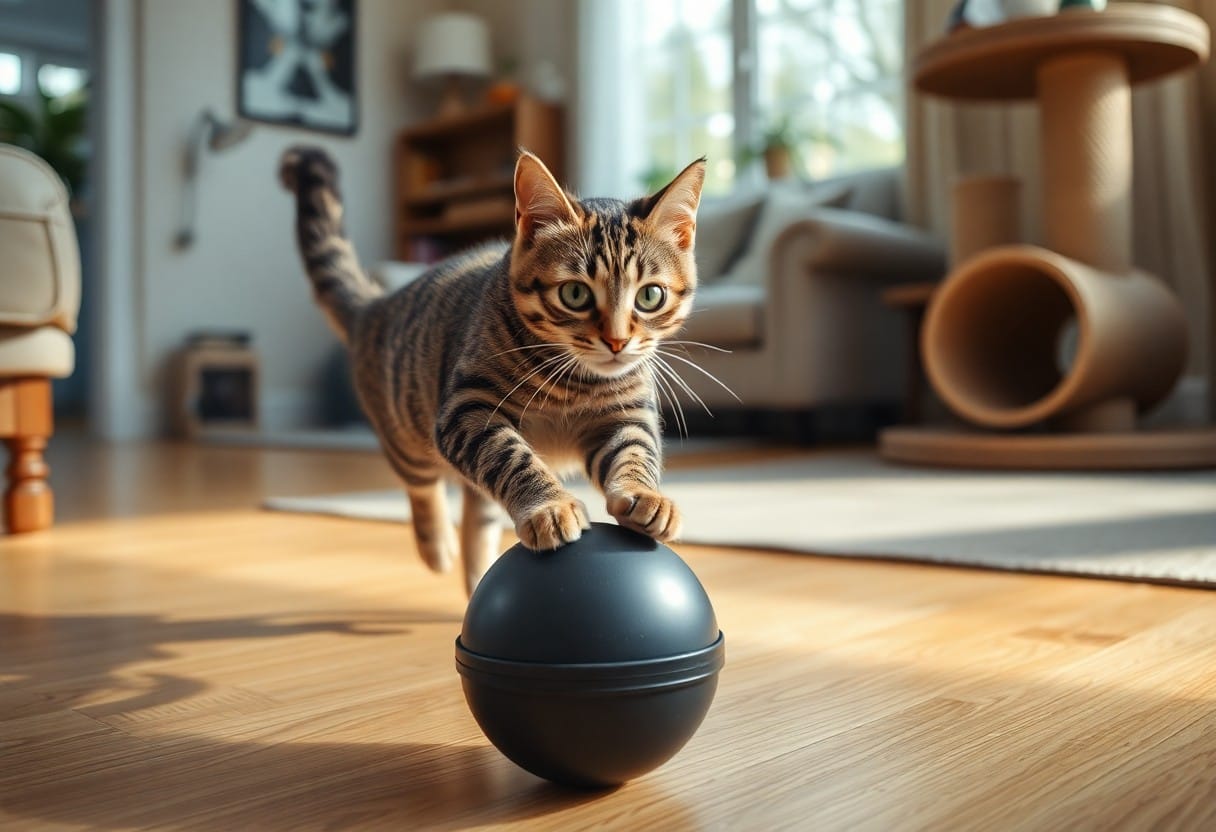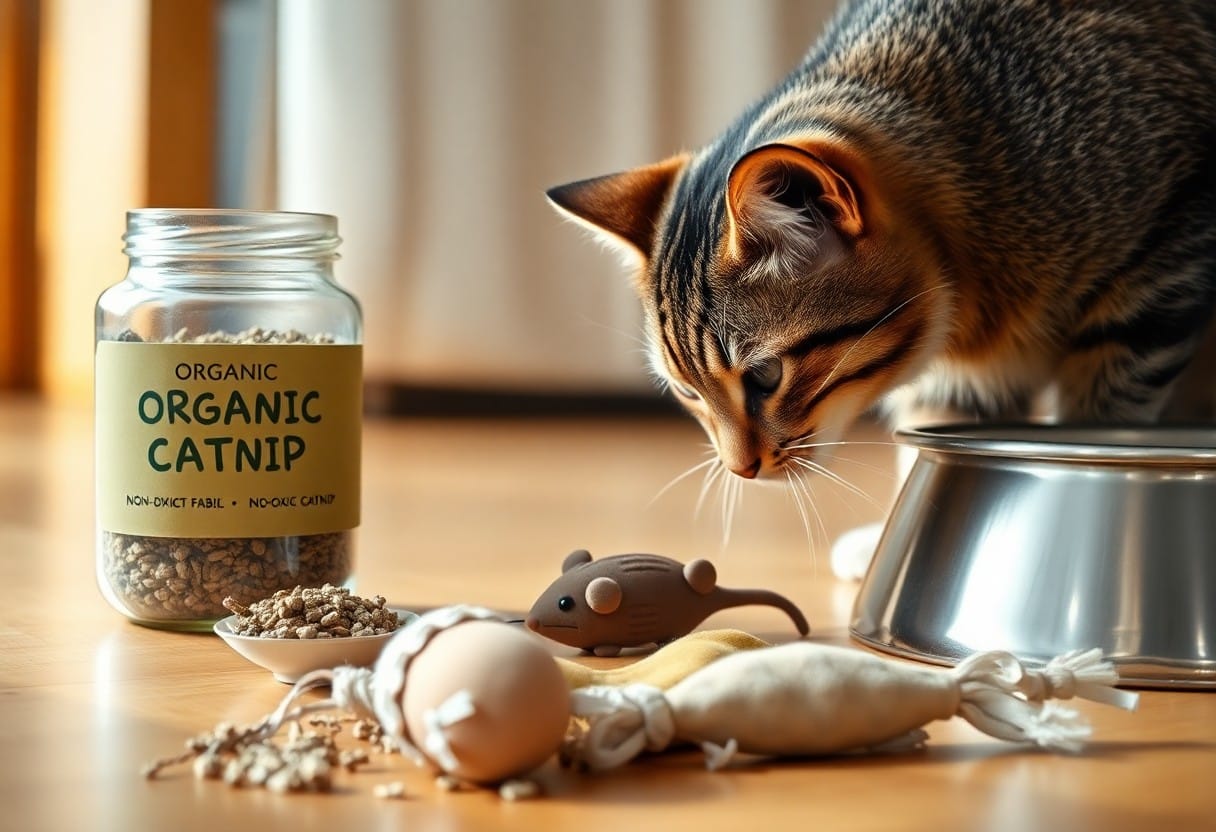Many common health issues can affect our beloved feline companions, and it is important for cat owners to be vigilant in identifying the early signs of these conditions. From dental problems and urinary issues to skin allergies and obesity, recognizing the symptoms can help in timely intervention and treatment. By familiarizing yourself with the typical signs of common health issues in cats, you can ensure your pet maintains optimal well-being and quality of life.
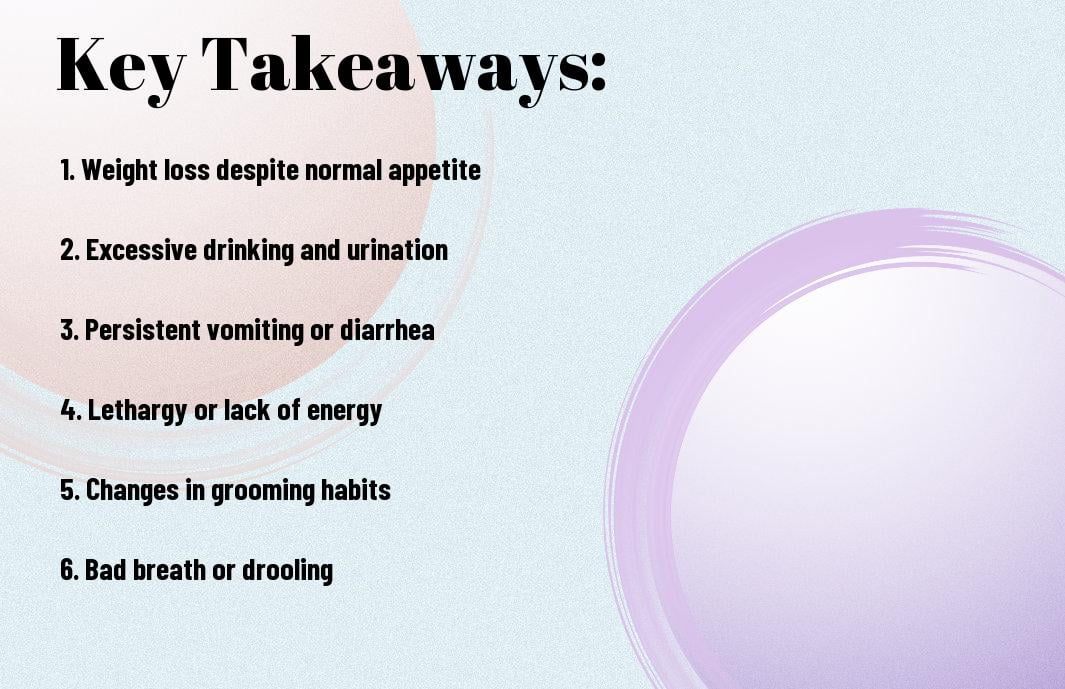
Nutrition and Weight Management
Importance of a Balanced Diet
Now, one of the most critical aspects of maintaining good health in your cat is ensuring they have a balanced diet. A well-rounded diet is crucial for providing the necessary nutrients that support your cat’s overall health and well-being. This includes proteins, fats, carbohydrates, vitamins, and minerals.
Common Nutritional Deficiencies
Nutrition plays a vital role in your cat’s health, and it’s crucial to be aware of common nutritional deficiencies that can arise. These can include lack of crucial vitamins such as vitamin A, D, E, and minerals like calcium and phosphorus.
It’s crucial to consult with your veterinarian to determine if your cat’s diet is providing all the necessary nutrients they require. They may recommend supplements or a different diet to address any deficiencies and ensure your cat maintains optimal health.
Obesity and Associated Health Risks
The issue of obesity in cats is a growing concern that can lead to various health risks. Obesity can result in serious conditions such as diabetes, joint problems, heart disease, and reduced lifespan. It’s important to monitor your cat’s weight and ensure they are not overeating or consuming excessive calories.
The best way to prevent obesity in cats is by providing a balanced diet and proper portion control. Regular exercise and engaging your cat in playtime activities can also help them maintain a healthy weight and reduce the risk of developing obesity-related health issues.
Dental Health Issues
Periodontal Disease
Not paying attention to your cat’s dental health can lead to periodontal disease, a serious condition that affects the gums and supporting structures of the teeth. One of the most common reasons for dental issues in cats is the buildup of plaque and tartar on their teeth, which can eventually lead to gingivitis and periodontal disease if left untreated.
Tooth Resorption
Resorption is another common dental problem in cats, where the structures of the tooth are broken down and absorbed by the body. This process can be painful for cats and may lead to tooth loss if not addressed promptly.
This condition is often difficult to detect without a thorough dental examination, as the signs of tooth resorption can be subtle. Regular dental check-ups with your veterinarian are crucial to catch and treat this condition early.
Signs of Oral Discomfort
Discomfort in the mouth can manifest through various signs such as drooling, pawing at the face, bad breath, and reluctance to eat hard food. If you notice any of these signs in your cat, it’s crucial to have their oral health evaluated promptly by a veterinarian.
Oral discomfort can indicate underlying dental issues that require professional treatment. Ignoring these signs can lead to worsening dental problems and potential pain for your feline companion.
Gastrointestinal Problems
Keep an eye out for any signs of gastrointestinal problems in your cat, as they can be quite common and may indicate underlying health issues. From hairballs to inflammatory bowel disease (IBD) and pancreatitis, understanding the symptoms and complications can help you provide the best care for your feline friend.
Hairballs and Their Complications
An occasional hairball is normal for cats, as they groom themselves regularly and may ingest some fur. However, frequent hairballs or symptoms like retching, lack of appetite, constipation, or diarrhea could indicate an underlying issue. In some cases, hairballs can cause complications such as blockages in the digestive tract, leading to vomiting, lethargy, or loss of appetite.
Inflammatory Bowel Disease (IBD)
Problems with chronic vomiting, diarrhea, weight loss, and poor appetite in your cat could be signs of Inflammatory Bowel Disease (IBD). This condition involves inflammation of the gastrointestinal tract and can be quite uncomfortable for your pet. Proper diagnosis by a vet is vital, as management through diet, medication, and sometimes supplements can help control IBD and improve your cat’s quality of life.
Understanding Pancreatitis in Cats
Cats can also suffer from pancreatitis, which is an inflammation of the pancreas. This condition can be acute or chronic and is often linked to other health issues. Symptoms may include vomiting, diarrhea, abdominal pain, and lack of appetite. Diagnosis and treatment by a veterinarian are crucial in managing pancreatitis and preventing complications.
Plus, maintaining a healthy diet, providing regular veterinary check-ups, and monitoring your cat’s behavior and bathroom habits can help in early detection and treatment of gastrointestinal problems like hairballs, IBD, and pancreatitis. Keep in mind, always consult with a vet if you notice any concerning symptoms or changes in your cat’s health.
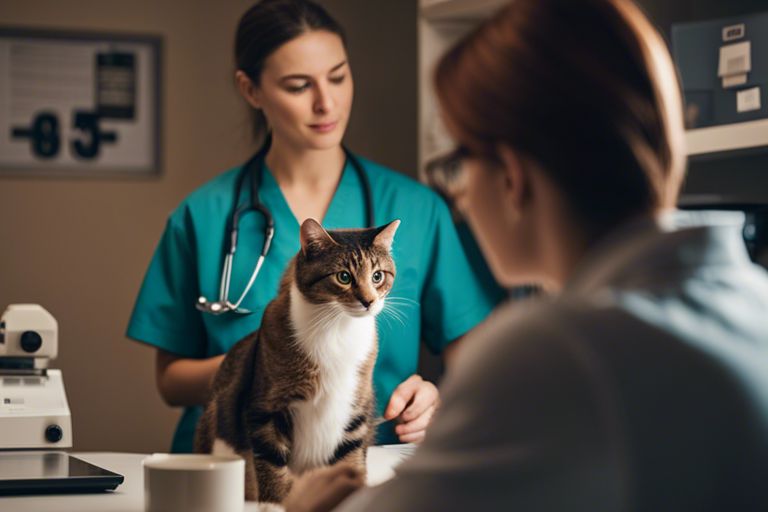
Urinary Health Concerns
Once again, urinary health concerns are common in cats and can be indicative of underlying issues that need prompt attention. It’s important for cat owners to be aware of the signs that may indicate urinary problems in their feline companions.
Feline Lower Urinary Tract Disease (FLUTD)
Tract infections are a frequent concern for cats and can lead to discomfort and potential blockages. Feline Lower Urinary Tract Disease (FLUTD) is a common condition that encompasses various issues affecting the bladder and urethra. Signs of FLUTD include frequent urination, straining to urinate, blood in the urine, and urinating outside the litter box. If left untreated, FLUTD can progress to a life-threatening emergency.
Kidney Disease
Urinary tract infections can also result from kidney disease, which is a serious health issue that can affect cats of all ages. Urinary issues related to kidney disease can manifest as increased thirst and urination, weight loss, poor appetite, and lethargy. Kidney disease requires ongoing management and veterinary care to support the cat’s overall health and quality of life.
The kidneys play a crucial role in filtering waste products from the blood and maintaining proper hydration levels in the body. When kidney function is compromised, it can lead to a buildup of toxins in the bloodstream and electrolyte imbalances, which can have detrimental effects on the cat’s health.
Signs of Urinary Distress
Tract infections and kidney disease can both result in signs of urinary distress in cats. These signs may include straining to urinate, vocalizing while urinating, urinating in small amounts, and licking the genital area excessively. It’s imperative for cat owners to be observant of any changes in their cat’s urination habits and seek veterinary attention if they notice any concerning signs.
It is crucial to address urinary health concerns promptly to prevent potential complications and ensure the well-being of your feline friend. Veterinary evaluation, proper diagnosis, and tailored treatment plans are imperative in managing urinary issues and maintaining your cat’s urinary health.
Respiratory Conditions
Feline Upper Respiratory Infections (URI)
Conditions like feline upper respiratory infections (URI) are common in cats and are often caused by viruses or bacteria. Symptoms of URI may include sneezing, nasal discharge, coughing, and fever. If you notice any of these signs in your cat, it is vital to consult with a veterinarian for proper diagnosis and treatment.
Asthma and Allergies
On occasion, cats can also suffer from asthma or allergies, which can lead to respiratory issues. Asthma in cats is typically triggered by environmental factors such as dust, pollen, or cigarette smoke. Allergies, on the other hand, can result from various allergens like certain foods or environmental factors.
Warning Signs of Respiratory Issues
Warning signs of respiratory issues in cats may include difficulty breathing, wheezing, coughing, and nasal discharge. If your cat displays any of these symptoms, it is crucial to seek veterinary care promptly. Respiratory conditions can worsen quickly and impact your cat’s overall health and quality of life if left untreated.
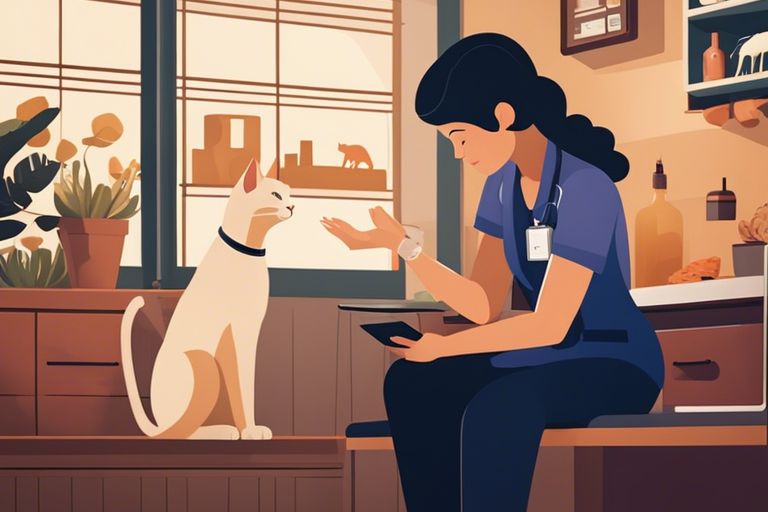
Skin and Coat Disorders
Parasites: Fleas, Ticks, and Mites
After fleas, ticks, and mites infest a cat, they can cause a variety of skin issues. Common signs of a parasite infestation include excessive scratching, hair loss, redness, and skin irritation. To check for parasites, part your cat’s fur and look for small moving specks or black dots, especially around the neck and tail area.
Fungal Infections: Ringworm
For cats, fungal infections like ringworm can lead to hair loss, circular patches of irritated skin, and scaly lesions. Ringworm is highly contagious and can spread to other pets and even humans. If you suspect your cat has ringworm, consult your veterinarian for proper diagnosis and treatment.
Allergies and Skin Irritations
With allergies and skin irritations, cats may exhibit symptoms like itching, redness, swelling, and hair loss. Allergies can be caused by various factors, including food, pollen, or even certain materials. A vet can help determine the allergen through allergy testing and provide solutions to manage your cat’s symptoms.
Age-Related Health Challenges
Arthritis and Mobility Issues
Issues with arthritis and mobility can become more prevalent as cats age. Arthritis is a common condition in older cats, causing inflammation and pain in the joints. Signs of arthritis include difficulty jumping onto surfaces, stiffness, and reluctance to move. Providing a comfortable environment and consulting with a vet for pain management can help improve your senior cat’s quality of life.
Cognitive Dysfunction Syndrome (CDS)
With age, some cats may develop Cognitive Dysfunction Syndrome (CDS), which is similar to dementia in humans. Symptoms include disorientation, changes in sleep patterns, decreased grooming, and altered behavior. This condition can be distressing for both the cat and the owner, but there are strategies and medications that can help manage CDS symptoms and improve your cat’s cognitive function.
Understanding your aging cat’s health needs is crucial in providing the best care. Regular veterinary check-ups can help detect age-related health issues early, allowing for timely intervention and management.
Chronic Renal Failure (CRF)
Age-related chronic renal failure (CRF) is a common condition in older cats, affecting the kidneys’ ability to function properly over time. Symptoms of CRF may include increased thirst and urination, weight loss, and decreased appetite. It’s vital to monitor your senior cat’s kidney function through blood tests and urinalysis, as early detection and management can help slow the progression of the disease and improve the cat’s quality of life.
Challenges with age-related health issues in cats require proactive care and attention to ensure your senior feline companion stays comfortable and happy in their golden years.
Preventative Care and Regular Check-Ups
Many cat owners know the importance of preventative care and regular check-ups for their feline companions. These proactive measures can help detect potential health issues early on, leading to better treatment outcomes and overall well-being for your cat.
The Role of Vaccinations
Regular vaccinations are a crucial aspect of preventative care for cats. Vaccinations protect against serious and potentially life-threatening diseases such as rabies, feline leukemia virus (FeLV), and feline viral rhinotracheitis.
Importance of Spaying/Neutering
Vaccinations, while important, are not the only aspect of preventative care. Spaying or neutering your cat is equally important. This not only helps control the pet population but also reduces the risk of certain cancers and prevents behavioral problems associated with mating instincts.
Regular Health Screenings
Another vital component of preventative care is regular health screenings. These screenings involve physical examinations, blood tests, and other diagnostic procedures to assess your cat’s overall health and detect any underlying issues before they become serious.
For instance, as cats age, they become more prone to conditions such as kidney disease, diabetes, and hyperthyroidism. Regular health screenings can help catch these diseases early, allowing for prompt intervention and management to ensure your cat’s quality of life.
Behavioral Changes and What They Indicate
Litter Box Issues
Behavioral changes in cats, particularly related to the litter box, can indicate underlying health issues. If your usually fastidious cat starts avoiding the litter box, it could be a sign of a urinary tract infection, kidney disease, or other medical conditions. Conversely, if your cat is suddenly urinating more frequently than usual or outside the litter box, it could signal a health problem that needs veterinary attention.
Changes in Appetite or Activity Levels
Appetite and activity levels are good indicators of your cat’s overall health. A sudden increase or decrease in appetite or activity levels could be a sign of an underlying health issue. If your cat is eating significantly more or less than usual, it’s crucial to consult with your veterinarian to rule out any medical conditions. Similarly, changes in activity levels, such as excessive lethargy or hyperactivity, can also signify health problems that require attention.
Plus, sudden weight loss or gain without a change in diet or exercise routine can also be red flags for various health issues. Monitoring your cat’s eating habits and activity levels can help you detect potential health problems early and seek timely veterinary care.
Aggression and Other Behavioral Red Flags
Aggression in cats can be a result of underlying health issues, stress, or behavioral problems. If your cat is displaying uncharacteristic aggression towards you, other pets, or objects, it’s crucial to investigate the root cause. Additionally, other behavioral red flags such as excessive vocalization, hiding, or destructive behavior can also indicate that your cat is experiencing distress or discomfort.
Litter box issues, changes in appetite or activity levels, aggression, and other behavioral changes in cats should never be ignored. These signs can often be the first indication that something is amiss with your feline companion’s health. If you notice any of these behavioral changes in your cat, it’s crucial to seek veterinary advice promptly to address any underlying issues and ensure your cat’s well-being.
Final Words
On the whole, being aware of common health issues in cats and knowing the signs to look out for can help you provide timely care for your furry companion. Regular veterinary check-ups, a balanced diet, proper hydration, and a safe environment can all contribute to maintaining your cat’s overall well-being. Keep in mind, any changes in behavior, appetite, or physical appearance should be promptly addressed by a professional to ensure your cat’s health and comfort.
FAQ
Q: What are common health issues in cats?
A: Common health issues in cats include dental problems, upper respiratory infections, obesity, diabetes, and kidney disease.
Q: What are signs that my cat may have a health issue?
A: Signs that your cat may have a health issue include changes in appetite, weight loss or gain, lethargy, vomiting, diarrhea, excessive grooming, and changes in litter box habits.
Q: How can I prevent health issues in my cat?
A: You can prevent health issues in your cat by providing a balanced diet, regular exercise, annual veterinary check-ups, proper grooming, and a stress-free environment.
Q: When should I take my cat to the vet?
A: You should take your cat to the vet if you notice any sudden or severe changes in behavior or health, such as difficulty breathing, persistent vomiting or diarrhea, refusal to eat or drink, or any signs of pain.
Q: How can I help my cat maintain good health?
A: To help your cat maintain good health, ensure they have a clean and safe living environment, provide enrichment and mental stimulation, keep up with vaccinations and parasite control, and show them love and attention regularly.
